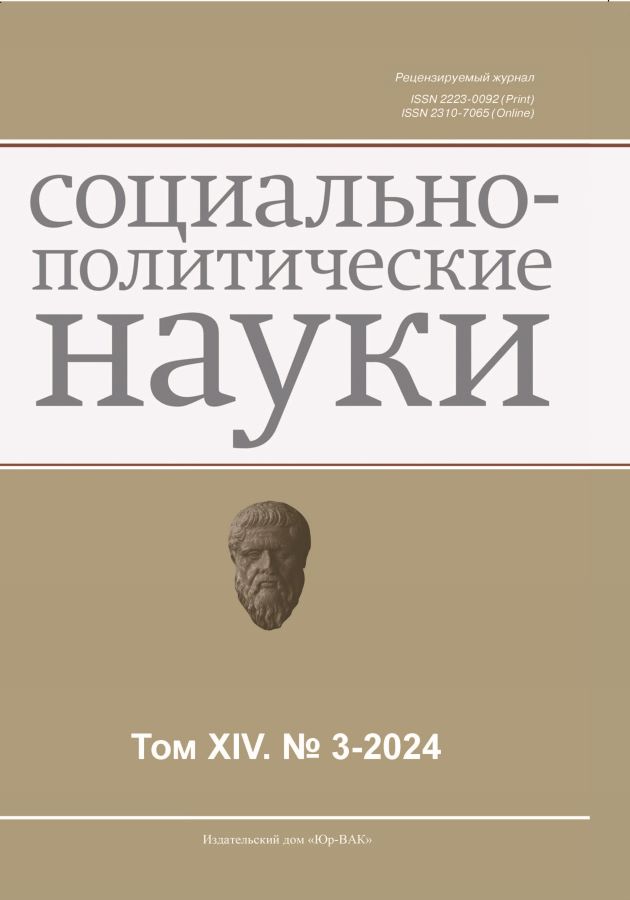Turkey’s soft power resources and tools in Azerbaijan
- Authors: Zinnurov I.K.1, Shangaraev R.N.1
-
Affiliations:
- Diplomatic Academy of the Ministry of Foreign Affairs of the Russian Federation
- Issue: Vol 14, No 3 (2024)
- Pages: 71-75
- Section: Political identity of Russia in the modern world
- URL: https://journals.eco-vector.com/2223-0092/article/view/635470
- DOI: https://doi.org/10.33693/2223-0092-2024-14-3-71-75
- EDN: https://elibrary.ru/IWUHGU
- ID: 635470
Cite item
Abstract
“Soft power” resources are the availability of certain opportunities, reserves, and options for one state to attract or voluntarily persuade another state to its policy. Azerbaijan plays an important role in modern Turkish geopolitics. Turkey is active in the South Caucasus, pursuing a policy of “soft power” through culture, investment and bilateral cooperation.
Keywords
Full Text
About the authors
Irek K. Zinnurov
Diplomatic Academy of the Ministry of Foreign Affairs of the Russian Federation
Author for correspondence.
Email: izinnur@gmail.com
SPIN-code: 2590-3356
graduate student
Russian Federation, MoscowRuslan N. Shangaraev
Diplomatic Academy of the Ministry of Foreign Affairs of the Russian Federation
Email: r.shangaraev@dipacademy.ru
ORCID iD: 0000-0001-6557-4388
SPIN-code: 2180-0229
Dr. Sci. (Polit.), Associate Professor; associate professor, Department of Strategic Communications and Public Administration
Russian Federation, MoscowReferences
- Kovba D.M. Resources and mechanism for the implementation of soft force. Discuss P. 2014. No. 1. Pp. 136–137.
- Lebedeva M.M. “Soft Power”: Concept and approaches. Bulletin of Moscow State Institute of International Relations (University). 2017. No. 3 (54). Pp. 213–220. (In Rus.)
- Iskhakov A.S. “Soft Power” of Turkey in the CIS space on the example of TİKA activities. Politics, Economics and Innovations. 2020. No. 4 (33). Pp. 4–5. (In Rus.)
- Ismailova L.G. Azerbaijani-Turkish economic cooperation and the main directions of its improvement. Science, Technic and Education. 2017. No. 9 (39). Pp. 1–5. (In Rus.)
- Lerna K.Y. The politics of educational exchange: Turkish education in Eurasia. Europe-Asia Studies. 2004. Vol. 56. No. 2. Рp. 293–307.
- Bayram B. Between Sunnism and Shiism: Islam in post-Soviet Azerbaijan. Central Asian Survey. 2004. Vol. 23. No. 2. Рp. 205–217.
- Bayram B. The AKP/Gülen crisis in Turkey: Consequences for Central Asia and the Caucasus. Central Asia Policy Brief. 2014. Vol. 16. Pр. 1–6.
- Iskhakov A.S., Shangaraev R.N. “Soft Power” of Turkey in the CIS countries. Bulletin of International Scientistist. 2022. № 2 (20). Pp. 160-178.
- Shangaraev R.N., Iskhakov A.S. Role of “soft power” in Turkey’s foreign policy. Issues of Political Science. 2022. Vol. 12. No. 9 (85). Pp. 3056–3066. (In Rus.)
- Karpovich O.G., Shangaraev R.N., Naonov M.M. The main vectors of Turkey’s foreign policy. Moscow: Diplomatic Academy of the Ministry of Foreign Affairs of Russia, 2024.
- Shangaraev R.N., Ivochkina A.S. Features of the application of Turkey’s “Soft Power” in the post-Soviet space. Issues of National and Federal Relations. 2023. Vol. 13. No. 9 (102). Pp. 3766–3782. (In Rus.)
Supplementary files









